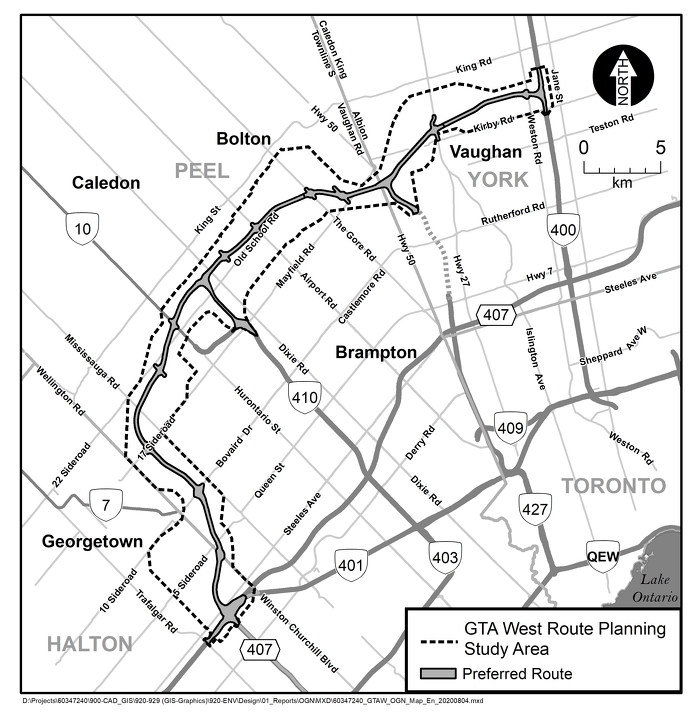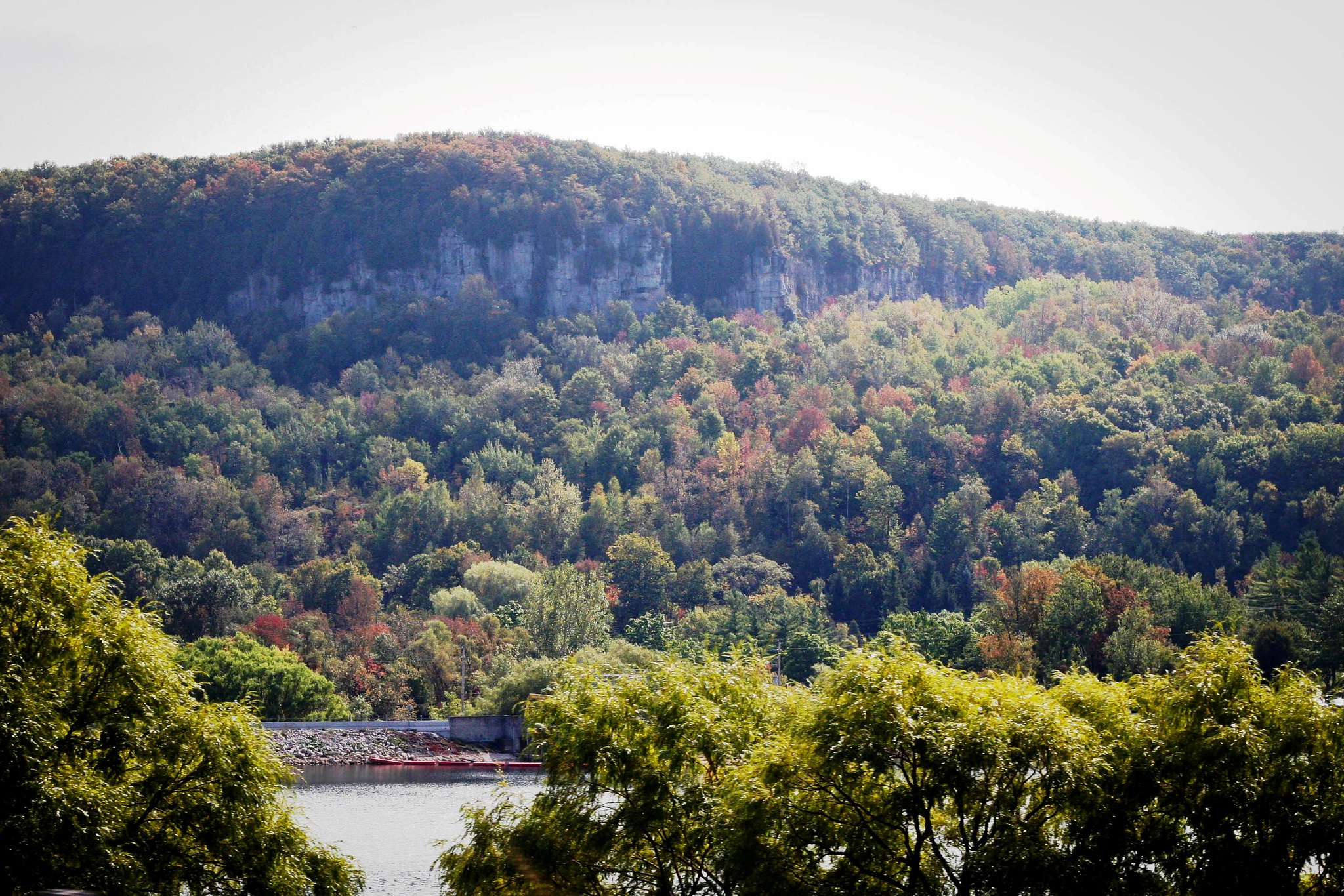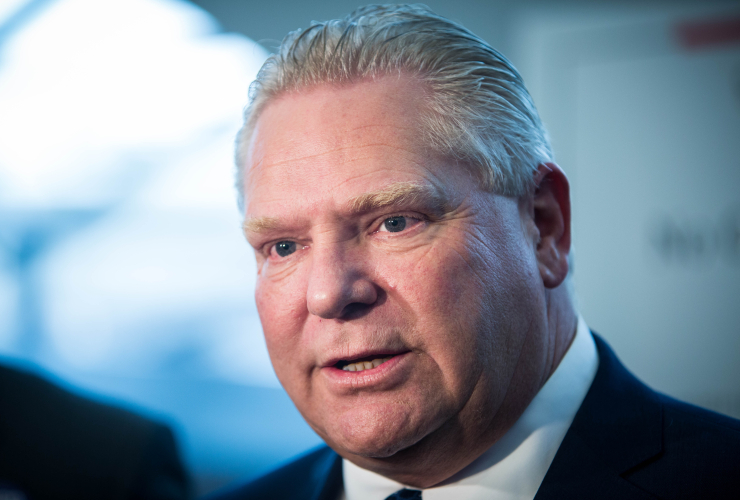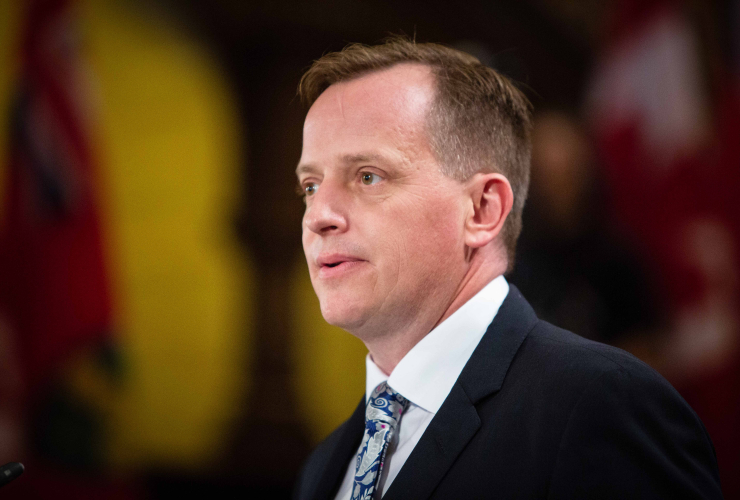A provincial advisory group and environmental advocates are urging the Ford government to reconsider plans to expedite a new Greater Toronto Area highway that could cut through the Greenbelt.
The idea for a highway through the region’s West Corridor was floated, then killed, by the previous Liberal government and revived under the Progressive Conservatives. The government announced its preferred route for the highway on Aug. 7, and has proposed to fast-track the project’s environmental assessment.
The Greenbelt Council, a government-appointed expert panel, said it would be “ill-advised” for the government to speed up the project, chair David Crombie wrote in an Aug. 18 letter to Municipal Affairs Minister Steve Clark, pointing to “significant stakeholder concerns.”
“The Greenbelt Council continues to have strong reservations about new transportation corridors in the Greater Golden Horseshoe in terms of both lack of need and the fact that such large-scale infrastructure compromises the protection of prime agricultural lands and the long-term integrity of natural heritage areas in the Greenbelt,” Crombie wrote. (Crombie, a respected former Toronto mayor, also served as a Progressive Conservative MP.)
And in a new report released Thursday, green non-profit Environmental Defence said the project would seriously damage the environment and pave the way for increased carbon emissions. It would also cut through at least 53 waterways in the protected Greenbelt, which Premier Doug Ford has repeatedly pledged not to develop.
“This highway was cancelled previously for good reasons,” said Environmental Defence programs director Keith Brooks.
“At a time like this, in a climate crisis… we’re going to build a new highway?”
The Ontario government has said it expects the corridor, Highway 413, will be used for 300,000 vehicle trips per day by 2031. It would run through the Halton, Peel and York regions, connecting several major 400-series routes.
“The GTA West Corridor will help alleviate traffic congestion and improve the movement of people and goods across the province,” Transportation Minister Caroline Mulroney said in an Aug. 7 statement.
Brooks pointed to research showing that building new roads doesn’t reduce congestion — it tends to attract more drivers, a concept called “induced demand” that was identified by two University of Toronto researchers in 2009. It’s not yet clear exactly how much that demand could affect Ontario’s climate goals, he added.
“The impacts are significant,” he said.

Previous government found highway would only reduce commutes by one minute
In 2015, an expert panel appointed by the previous Liberal government decided against a highway for the GTA West area. It would only reduce commuting times by an average of 30 seconds to a minute, the panel found, raising concerns about the impact the proposed highway could have on Ontario’s carbon emissions and the Greenbelt.
The route would run through the headwaters of several rivers, including the Humber and the Credit. Road salt could leach into them, causing damage, Brooks said. The highway would also cut off habitats for some endangered species, he said.
The panel also found that it wasn’t clear a highway was the best option for the area, and suggested a number of alternatives. For example, the panel said, allowing trucks to use the nearby Highway 407, a toll road, without paying the fee “would deliver travel time benefits that are similar” to those from building a new highway.
In his letter to Clark, Crombie pointed to the panel’s findings, and recommended the government not speed up the environmental assessment process as it pushes forward with the project.
“In the interests of fair and transparent decision-making that respects the public process, it is council’s advice that the (environmental assessment process for the project) be neither shortened nor altered,” he wrote.
Brooks pointed to other alternatives as well. The government would be better off investing in transportation, cycling infrastructure or walkable neighbourhoods, he added.
“It’s a pro-development agenda, which this government has pursued from the get-go,” Brooks said. “They want to cut red tape, they want to get development going... There are a lot of better ways.”
Thank you for this article.
Thank you for this article. It's hard to understand how the government can justify reviving an utterly failed highway plan except on political grounds (protecting agricultural lands, forests and fresh water was a Liberal Party priority therefore we're against it). And of course the highway is good for urban sprawl and land speculators who have been waiting to develop the land they have owned for decades-- the land they see as "idle" which is, in fact, some of Ontario's best agricultural land. The fact that we face food insecurity due to a pandemic and global disruption to supply chains be damned. Land speculators are fueling economic chaos by warping government decisions to favour them.
Never let it be said that
Never let it be said that politicians trade in foresight that exceeds the length of their term in office. Does it ever occur to them that the monolithic concrete ribbons that burden this province will. probably in my granddaughter's life span, become ruinous, crumbling testaments to human stupidity and greed?






Comments